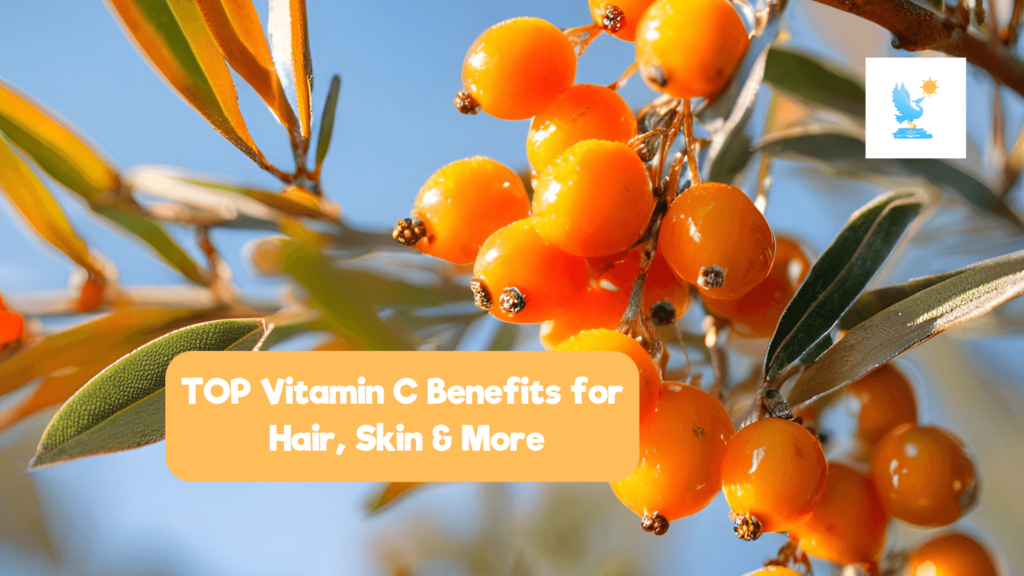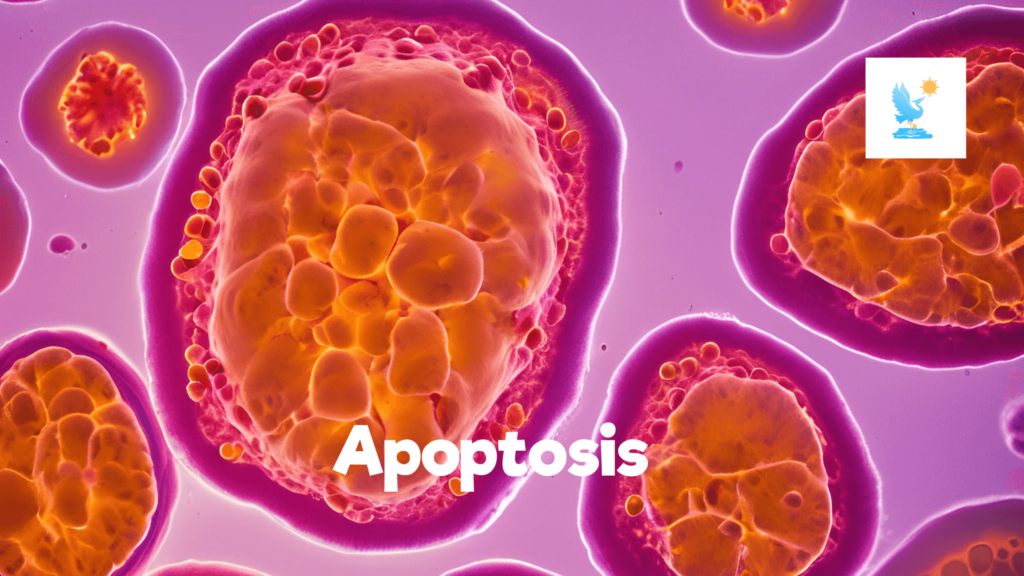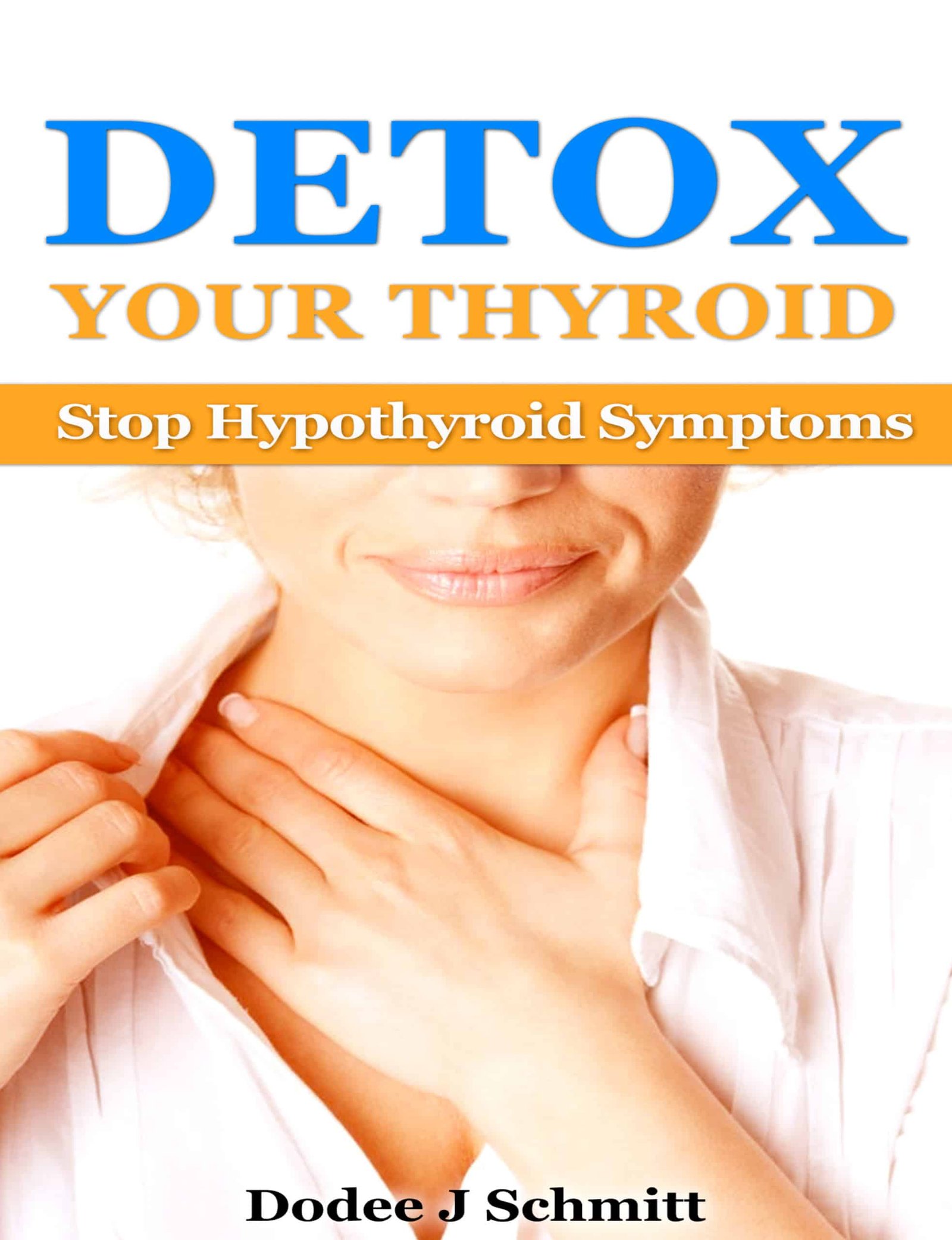Top 5 Benefits of Vitamin C: Ultimate Hair health, Skin Health & More

Today, we are diving deep into the health benefits of vitamin C.
Vitamin C, also known as ascorbic acid, is a key pillar in a thriving, healthy body.
Our immune systems, skin, hair, and oral cavity rely on it to stay in top shape.
What’s more, vitamin C is not stored in the body, so we must provide ourselves with ample vitamin C each day to replenish our reserves.
It is essential to choose whole-food vitamin C sources, which we will expand upon in this article.
The health benefits of vitamin C are profound.
Vitamin C benefits:
- White Blood Cells
- Blood vessels
- Bones
- Cartilage
- Collagen production
- Oral environment and
- Aids wound healing
It can offer us a cost-effective approach to enhancing our immune system.
It plays a key role in the detoxification of certain heavy metals such as:
- Lead
- Mercury
- Aluminum and
- Cadmium
The health benefits of Vitamin C are multifold and offer us a solution to overcoming excessive oxidation.
Let’s take a deeper dive into the key benefits of vitamin C.
Vitamin C Health Benefits
Vitamin C Benefits the Immune System
Our immune system gets a powerful upgrade when we get plenty of whole food vitamin C.
Particularly our white blood cells are enhanced.
This includes:
- T Cells
- B Cells
- Macrophages
- Neutrophils
Vitamin C helps support their functional production, which enables a more strong and robust immune system to handle
- Infections
- Viruses
- Parasites
- Yeast
- Mold
- and Fungi
Assisting Apoptosis
Once a white blood cell has finished its task of fighting off infections Vitamin C can come in and help clear out the old white blood cells.
Vitamin C essentially assists in the safe removal of these old white blood cells.

2.Vitamin C: The Powerful Antioxidant
We need antioxidants to combat the free radicals formed from the different various processes our bodies undergo.
The free radicals form during processes such as:
- Exposure to Environmental Toxins
- Chronic Inflammations
- Radiation Exposure
- Metabolism
- Inflammation
Oxidative damage wreaks havoc on our cells and tissues.
Vitamin C is a water-soluble antioxidant that protects cells from oxidation in the blood and cellular fluids.
Beyond neutralizing free radicals, it also has the ability to regenerate other antioxidants like Vitamin E.

3. Vitamin C & Skin Health
Vitamin C benefits the skin in multiple ways.
Collagen production is increased when whole food-sourced vitamin C is added to the diet.
This will help tighten and tone the skin, aiding a plump, youthful tone.
To boost collagen production even more, add a high-quality sea moss supplement or make sea moss gel yourself.
Sea moss contains essential minerals and amino acids for building collagen.
Vitamin C is a critical player in wound healing and in speeding up the process.
This tissue repair will also help conditions such as acne or rosacea.
It can help protect and strengthen the skin barrier, locking in moisture and protecting it from environmental toxins and radiation.
4. Vitamin C & Thyroid Health
If your thyroid does not have enough vitamin C, it can cause imbalances potentially leading to ill health.
In the case of hypothyroidism, Vitamin C may help to assist the body’s management of TSH levels.
Vitamin C benefits the thyroid by aiding the conversion from T4 to T3.
This conversion is crucial for energy production, overall thyroid health, and metabolism.
The other important benefit to note here is how Vitamin C assists the adrenal glands, which indirectly benefits our thyroid gland.
These two glands are interconnected and regulate stress.
Ensuring adequate vitamin C will help soothe and regulate the glands during a stressful life.
Also, note that in hypothyroidism, oxidative stress is an issue which Vitamin C can help neutralize.
Learn more about natural thyroid health and grab my Ebook Detox Your Thyroid below.
There are several ways vitamin C can help the hair remain strong and healthy.
First of all, it can protect the scalp from oxidative damage, keeping the hair on the head and preventing hair loss.
As vitamin C supports the barrier function of the scalp you can expect to see less scalp inflammation or dandruff.
It has also been known to improve blood flow to the scalp, which will improve the overall texture and hydration of the hair.
In turn, you can expect to see less hair-splitting and dryness.
Couple this with scalp massages and hair masks for the ultimate in hair therapy.
Vitamin C is not just a factor in skin health but also vibrant hair health.
Vitamin C helps keep the hair strands healthy by promoting elasticity, scalp health, and hair strength.
Antioxidant protection, as we touched on earlier, is crucial for youthful hair.
With a high-quality whole-food vitamin C supplement, we can ward off the signs of premature aging.
Things like hair loss & early hair graying can be lessened by incorporating vitamin C into your daily regime.
Adequate iron is essential for strong, healthy hair.
Vitamin C helps the body absorb iron from your food sources.
Keep an eye on your iron levels as there is a sweet spot here.
Too much or insufficient can cause issues in the body, such as pain or excessive oxidation.

Key Factor in Vitamin C Health Benefits
Without a healthy gut and a well-balanced lifestyle, no supplement will truly work.
In order to get the full benefits of Vitamin C, be sure to get it from whole foods or take a whole-food vitamin C supplement.
Also, recognize that you must be absorbing vitamin C for it to benefit you in these areas.
Be sure to incorporate cultured foods or a gut healing protocol to get the most out of your vitamin C supplements.
Where to Get Vitamin C?
Here’s a list of low-glycemic foods rich in vitamin C:
- Red Bell Peppers: One of the highest sources of vitamin C.
- Broccoli: Packed with both vitamin C and fiber.
- Strawberries: A delicious fruit high in vitamin C and antioxidants.
- Kale: A nutrient-dense leafy green full of vitamin C.
- Brussels Sprouts: Rich in vitamin C and other essential nutrients.
- Cauliflower: A low-calorie vegetable that’s a good source of vitamin C.
- Tomatoes: Fresh tomatoes are an excellent source of vitamin C.
- Spinach: Another leafy green with a solid amount of vitamin C. (High in Oxalates)
- Cabbage: Both green and red varieties are rich in vitamin C.
- Swiss Chard: Loaded with vitamin C and other vitamins. (High in oxalates)
Incorporating these foods into your daily diet can help you meet your vitamin C needs.
I personally choose to take a whole-food powder source of vitamin C to ensure I get enough each day.
If you are not concerned with low glycemic options, whole fruits such as oranges, kiwi, pineapple, and guava will provide vitamin C.
With the fiber intact, it will help with glycemic concerns, and eating whole organic fruit on its own is usually best for optimal digestion.
Blended smoothies can also work well, pairing the whole fruit with greens.
Conclusion: Benefits of Vitamin C
In conclusion, vitamin C is a powerhouse nutrient with far-reaching benefits for our immune system, skin, hair, thyroid, and overall health.
Vitamin C is essential for maintaining vitality because it supports white blood cell function, acts as a potent antioxidant, aids collagen production, and promotes healthy hair and thyroid function.
To fully harness these benefits, it’s important to focus on whole food sources of vitamin C and ensure optimal gut health for effective absorption.
Incorporating vitamin C into your daily routine can be a simple yet powerful step toward achieving long-term wellness.
POPULAR POSTS








